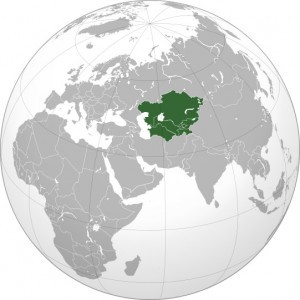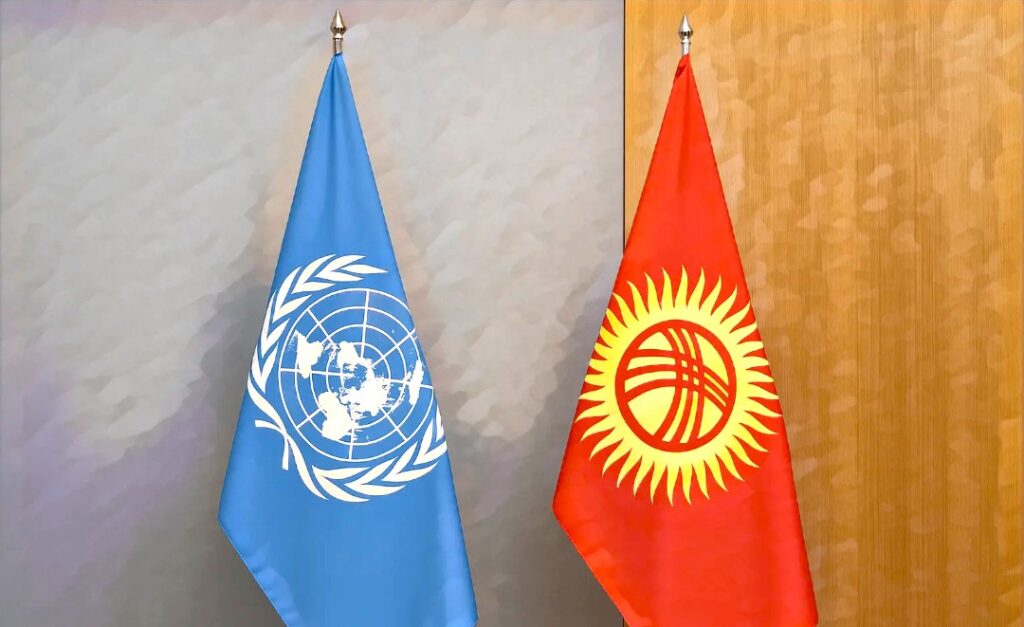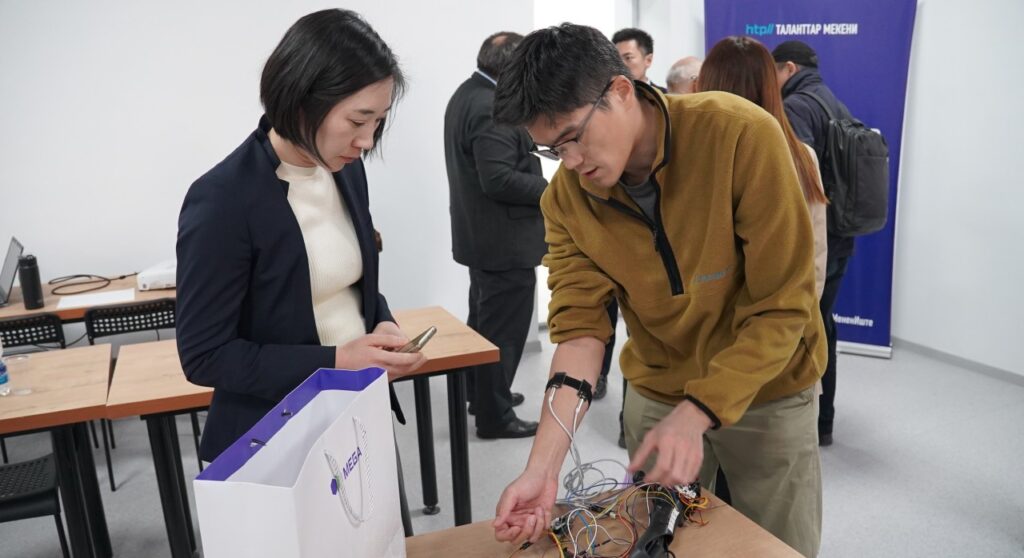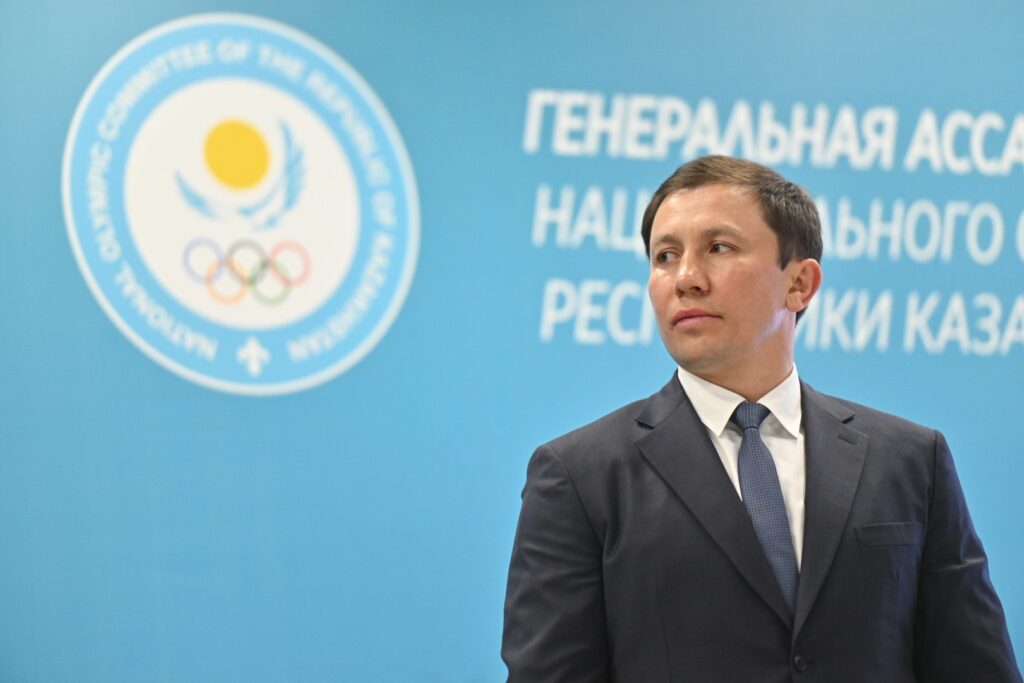BISHKEK (TCA) — The Times of Central Asia presents to its readers Stratfor’s Global Intelligence, a weekly review of the most important events that happened in the world — from Europe to Middle East to Russia to Central Asia to Afghanistan to China and the Americas.
The Week That Was
Moscow’s Mixed Signals
Russia sent a series of mixed messages this week that could foretell compromise or confrontation. Moscow hinted that it may strike a deal with Ukraine for a prisoner exchange, which could free captured Ukrainian pilot Nadia Savchenko and comply with a demand from both Kiev and the West. Another Western request was met when representatives of the Ukrianian separtist regions of Donetsk and Lukansk decided to postpone local elections, likely encouraged by Russia. These gestures contributed to the United States firmly declaring it would not send lethal aid to Ukraine, which pleases Moscow.
This cooperation was paired however with aggressive incidents: Russian military aircraft harassing U.S. airplanes with dangerous interceptions and even passing into NATO airspace. Moscow has continued its significant military involvement in Syria, while rattling the nuclear saber over breaking arms control treaties. No wonder the Russian delegation called the session of the NATO-Russia Council on Wednesday (the first in two years) was called “serious.” Russia is testing compromise with the West in Ukraine, while still showing it has a string of threats should the continued negotiations go awry.
Brazil’s Embattled President Makes an Appeal
Just weeks before the Brazilian senate votes on whether to remove her from her post, President Dilma Rousseff traveled to New York to sign the Paris climate change agreement. Rousseff also used the trip to decry her impeachment and frame it as an attempted coup by Vice President Michel Temer in alliance with other opponents. Rousseff’s attempt to frame the impeachment as illegitimate is logical. By defending herself to the end, Rousseff hopes to hold some public to prevent impeachment. However, the impeachment vote in the senate appears to be steadily turning against the president, and it is becoming increasingly likely that a senate vote tentatively scheduled for mid-May could remove her from her post.
Competing Pressures in the Gulf
Over a two-day visit to Riyadh to attend a Gulf Cooperation Council Summit, U.S. President Barack Obama primarily focused on regional security and counterterrorism cooperation with his Gulf counterparts. Obama has pushed for Saudi Arabia and the other Gulf nations to take a leading role in the fight against Islamic State, while the Gulf has pressured the United States in turn to help resupply the particular Syrian rebel factions they back. With a split in Washington over once again supplying heavy weaponry to Syrian rebels, Obama is limited in what he is able to offer his allies. For their part, Saudi Arabia has taken what it considers to be a leading role in coordinating counterterrorism efforts, even if it is hesitant to become embroiled in the internal politics paralyzing Baghdad, an obstacle halting further global cooperation against Islamic State that Obama addressed during his visit.
In Iran, a Controversial Contract Model
Iranian Parliamentary Speaker Ali Larijani backed Iran’s new oil contract model this week, ordering its enforcement amid continued internal tension over the terms of potential foreign investment into Iran’s oil sector. While the framework of the new contracts have been approved by President Hassan Rouhani’s Cabinet and the Majlis have not stepped into block the contract, the exact final details on specific parts are undecided. Iran’s hardliners are hoping to force high local content regulations ensuring their constituents (the Islamic Revolutionary Guard Corps engineering arms, for example) are not cut out of the contracts, and the deal has also generated controversy within the National Iranian Oil Company where some executives feel they should operate projects themselves once they begin producing. Additionally, this week the head of drafting Iran’s new contracts, Seyed Mehdi Hosseini, spoke at a conference in Paris saying that the country hopes to have the final details resolved by June or July.
More Disagreement on Oil Production Freeze
Not only did this the week begin with major oil producers failing to reach an agreement on freezing oil production, it also began with the first sector-wide strike in Kuwait’s oil and natural gas sector since the mid 1990s. This took roughly half of Kuwait’s 2.8 million barrels of daily production offline for three weeks. While the strike did not last long enough to impact global markets, it is an important indication of Kuwait’s challenges in trying to reform its public wage system in response to low oil prices. Kuwait’s oil and natural gas workers are worried that new laws designed to evenly distribute pay among sectors will cause their comparatively high wages to freeze and decline. The showdown over the wage bill has not ended, the two sides merely agreed to continue negotiations. The issue will almost certainly resurface again and another strike threat cannot be ruled out. The Gulf Cooperation Council will watch how Kuwait, which has relatively less restrictive laws against unionization and strikes, handles the negotiations will provide critical insight as those countries go through similar challenges.
Xi has a New Title
On Wednesday, Chinese President Xi Jinping revealed that he had a new title: commander in chief of a newly formed Joint Battle Command. The title and the command itself are both unprecedented in China. The new command is organizationally subordinate to the Central Military Commission but the title is ostensibly equal to his existing title as chairman of the commission. The Chinese government has stressed that this new command focuses on operational issues (setting it apart from the Central Military Commission’s overall policy functions). While it makes sense that the People’s Liberation Army would stand up an organization designed to lead China’s five new theater commands, Xi’s appointment as its commander raises the possibility that the president may manage the military on an operational level in a way that may impact its performance in combat.
Indonesian Shipping Escort Policy
This week, Indonesia imposed a temporary ban on unescorted shipping to the Philippines, following a spate of kidnappings for ransom conducted by the Abu Sayyaf Group in the past weeks. The coal trade between the two countries appears to have been disrupted. Two coal ports have suspended shipments bound for the Philippines, which imports 70 percent of its coal from Indonesia. At least one coal company has reported that it was diverting Philippines-bound coal to Hong Kong for the next three months. This shows that a spike in relatively small security incidents at sea can have a sizable macro impact on trade patterns. The defense chiefs of Indonesia, Malaysia and the Philippines are reported to be meeting May 3 to discuss improving maritime security cooperation. This could be viewed with some concern by China as having spillover effects on trilateral maritime cooperation between the three countries on South China Sea issues.
Full Articles
China: Where Big Brother Meets Big Data
China’s surveillance techniques are aggressive by any standard. Citizen watches patrol neighborhoods, on the lookout for anything out of the ordinary. Police tail and report on persons of interest, and video cameras are deployed throughout cities to capture the slightest suggestion of wrongdoing. Even in online chat rooms and blogs, China’s citizens have little privacy: Government censors comb through content and at times even engage in ongoing chats to draw out and identify dissidents.
Germany and the European Central Bank Face Off
Northern European countries such as Germany have historically preferred tighter monetary policy to control inflation. Southern European countries such as Italy, by contrast, are more accustomed to a looser monetary policy and to the economic stimulation that follows. Their disagreement has snowballed since the beginning of the global financial crisis, and the ECB, which governs monetary policy, is stuck in the middle. Since 2014, the south has largely had the advantage in this dispute, creating problems for Germany and friction between it and the ECB that is likely to only worsen in the coming year.
A Bright Future for Solar Power in the Middle East
Deserts are seemingly obvious places to locate solar technology. In fact, the swath of desert stretching from the Atlantic Ocean, across North Africa and the Arabian Peninsula, to the Persian Gulf has vast solar potential. Yet only now has a combination of demographic pressure, low oil prices and technological readiness primed Middle Eastern and North African states for more investment in solar power. For countries such as Jordan and Morocco, renewable energy may offer a path toward greater energy independence. Others, such as Saudi Arabia and the United Arab Emirates, are interested in exporting renewable energy technology and financing solar projects abroad.
In Ukraine, the Cycle of Uncertainty Churns On
Two years after the Euromaidan uprising, the process of reorienting Ukraine’s foreign policy and pursuing ambitious economic and political reforms has taken its toll on the government. Growing discontent with the slow pace of economic recovery and reform forced the pro-West government in Kiev to replace Prime Minister Arseniy Yatsenyuk with Volodymyr Groysman on April 14. The replacement at once brought a much-needed pause to Ukraine’s political infighting and covered the country in a shroud of uncertainty. Ukraine is no stranger to cyclical changes in its political allegiances, cozying up at times to Russia and at times to the West throughout its history. Even so, today there are more doubts than certitudes over Ukraine’s future.
The Slow Drive Toward Automated Vehicles
Automated vehicles are no longer the far-off concepts of science fiction. New trials or developments in self-driving vehicles are announced on a regular basis, and the Google car, driving itself as it gathers data, is becoming a familiar sight along the streets of Mountain View, Calif., and Austin, Texas. But while autonomous vehicles will inevitably become more prominent as computing technology matures, fully replacing human drivers with self-driving machines is another matter entirely.
Why Russia Harasses U.S. Aircraft
Since Russia annexed Crimea in 2014, tension with the West has been high, affecting eastern Ukraine, Syria and hot spots across the former Soviet sphere. Less overtly, Moscow has been working to protect areas vital to Russian interests by raising the stakes of U.S. operations there. This has manifested in numerous aggressive interceptions of U.S. military aircraft in flight, especially over the Black and Baltic seas. The interceptions, which are reportedly occurring more frequently, aim to dissuade Washington from operating in that airspace.
The Week Ahead
Preparing for a Post-Rousseff Brazil
Representatives from the Social Democracy Party of Brazil will meet with representatives from the Democratic Movement Party of Brazil on Tuesday to decide whether or not the former wants to be part of the latter’s coalition government Cabinet. Joining the Cabinet would grant the more conservative Social Democracy Party additional influence in a new government led by Vice President Michel Temer, which could emerge in May if President Dilma Rousseff is impeached. Meanwhile, the president’s supporters from political organizations including the Movement of Homeless Workers and the Front of People Without Fear plan to protest Wednesday against her impeachment across the country. The groups are expected to block roads, which could lead to temporary disruptions in the movement of people and goods across Brazil.
Next Saudi Five-Year Plan
On Monday, Saudi Arabia’s Council of Economic Development Affairs will unveil Saudi Arabia’s next five year plan, dubbed the National Transformation Plan. Saudi Arabia’s Deputy Crown Prince, Mohammed bin Salman, is at the center of the months-long effort to develop Saudi Arabia’s post-oil plan, in consultation with most government ministries and foreign and domestic consultants. The plan will focus on further privatization, asset sales and tax increases, as well as spending cuts and subsidy reforms. Though the Deputy Crown Prince has specifically emphasized that the plan will seek to shield the most vulnerable Saudis from economic hurt, all the concurrent levers of economic reform are bound to collide with each other.
Sino-Indonesian Talks
Luhut Panjaitan, Indonesia’s Coordinating Minister for Political, Legal, and Security Affairs, will be visiting China from April 27 to April 28 at the invitation of Chinese State Councillor Yang Jiechi for the fifth meeting of the China-Indonesia Bilateral Dialogue Mechanism at the Deputy Prime Minister level. There should be plenty on this agenda. Among them are likely to be issues related to a maritime clash near Natuna between the Indonesian and Chinese coast guards in late March surrounding the impounding of a Chinese fishing vessel and its crew. This prompted calls in Indonesia to strengthen Indonesia’s naval presence in the Natuna Islands. A key concern of China will be to dissuade Indonesia from developing maritime security ties with Malaysia and the Philippines that could lead to concerted action against China. Note that Luhut was the Indonesian official that floated the possibility that Indonesia could bring legal action against China on maritime activities last year.









